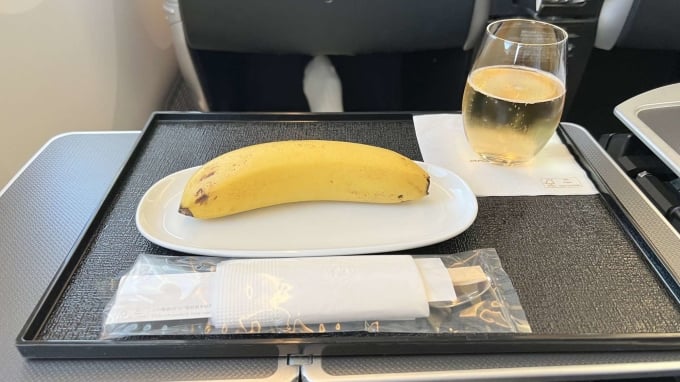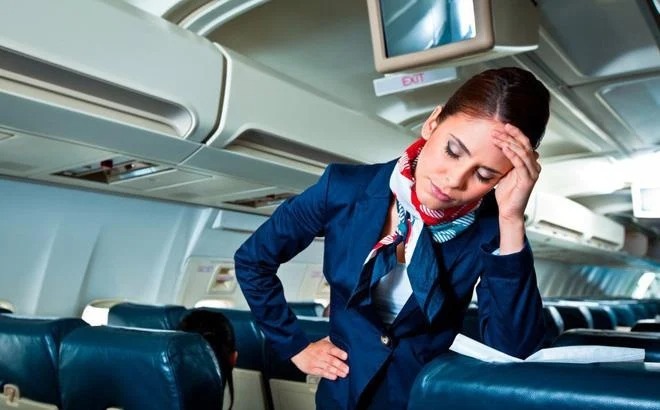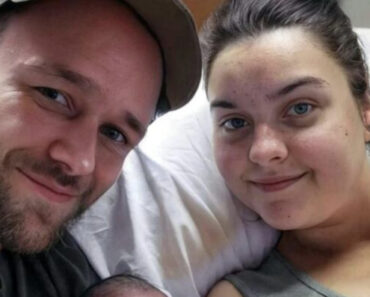at offers many benefits to flight attendants. For example, bananas can protect the stomach lining. The stomach lining is a protective layer inside the stomach, preventing gastric acid from damaging the stomach wall.

If the stomach lining is irritated or ᴅᴀᴍᴀɢᴇᴅ, it will cause stomach pain, stomach ulcers and other problems. Flight attendants are prone to stomach pain due to irregular eating. Meanwhile, bananas have a chemical that can stimulate the growth and reproduction of stomach lining cells, making the stomach lining healthier. Therefore, flight attendants eat a banana, can protect the stomach.
Furthermore, bananas can lower blood pressure. If blood pressure is too high or too low, it will put a burden on the heart and blood vessels, causing cardiovascular diseases. Flight attendants are susceptible to high blood pressure and cardiovascular diseases due to having to fly at high altitudes for long periods of time. Bananas contain a mineral called potassium, which can help the body excrete excess sodium and control blood pressure. Therefore, flight attendants eating a banana can help lower blood pressure and prevent cardiovascular diseases.
Finally, bananas can moisten the intestines. If the intestines are not smooth, it will lead to problems such as constipation and gastrointestinal discomfort. Flight attendants are prone to intestinal discomfort due to irregular life and unbalanced diet. Bananas contain a type of cellulose called pectin, which can aid digestion, regulate gastrointestinal function, and prevent constipation. Therefore, flight attendants eat a banana, which can moisten the intestines.
Flight attendants are not really like a dream

The job of a flight attendant is really not easy, they have to endure great pressure and risks, facing many different passengers and situations.
First of all, flight attendants must undergo rigorous selection and training, requiring height, weight, appearance, temperament, language and other aspects to meet certain standards.
Flight attendants must represent the image of the airline and leave a good impression on passengers. Flight attendants also need to learn a variety of professional knowledge and skills such as security checks, emergency response, medical rescue, etc.
In addition, flight attendants should provide services to passengers throughout the flight, including distributing meals, drinks, blankets, headphones and other items, answering passenger questions and needs, soothing passenger emotions and handling various emergency situations.
Flight attendants must always smile and be polite, not lose their temper or show impatience. Flight attendants also have to deal with some uncivilized or unreasonable behavior from passengers such as drunkenness, ғɪɢʜᴛɪɴɢ, sᴇxᴜᴀʟ ʜᴀʀᴀssᴍᴇɴᴛ, etc.

In addition, flight attendants must adapt to different time zones and climates, frequently fly at high altitudes, and endure harsh environments such as lack of oxygen, low pressure, dryness, and noise. Flight attendants also have to endure long-term instability and airsickness, as well as hazards such as searchlight radiation and static electricity. Flight attendants’ biological clocks are often disrupted, and they are prone to symptoms such as insomnia, fatigue, and headaches.
Finally, flight attendants have to sacrifice their time and personal life, often traveling abroad for work, unable to travel with family and friends. Flight attendants also do not have a fixed time or place to rest, sometimes only being able to rest quickly at the airport or hotel. Flight attendants also do not have time to travel or enjoy local scenery and cuisine.





